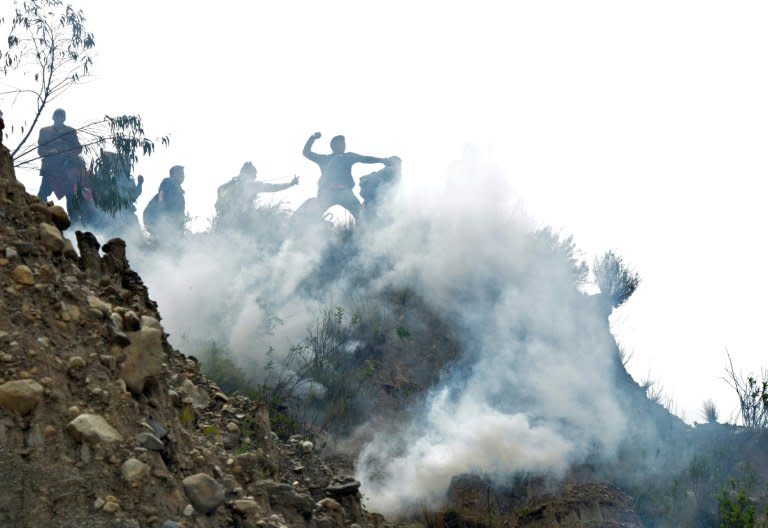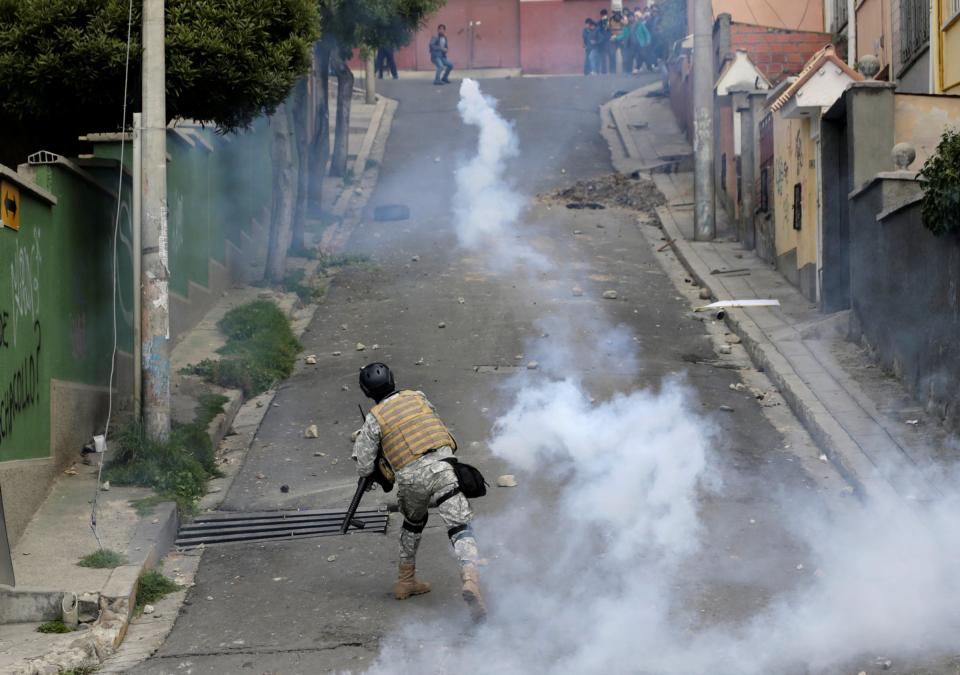Bolivian farmers threw dynamite and fireworks at police during protest over cultivation of cocaine's base product

REUTERS/David Mercado
La Paz (AFP) - Coca farmers clashed with police Tuesday in the second straight day of violent protests in La Paz against a Morales government bill to limit legal areas of cultivation.
Angry farmers threw dynamite, fireworks and rocks at police in an attempt to regain positions lost late Monday in a clash at access points to the Palacio Quemado, the seat of government and residence of President Evo Morales.
Anti-riot police agents fought hundreds of coca growers for four hours, firing tear gas to disperse the crowd.
The violence Tuesday ended with 148 arrests, the deputy Interior minister, Jose Luis Quiroga, told reporters.
"Police were investigating each one to determine the level of responsibility for the public disturbance," he said.
Carlos Aparicio, the deputy minister of public safety, said the protesting coca growers "burned police installations, a firefighting unit" and had threatened to blow up a gas station.

© AFP Aizar RALDES
Morales, a former union leader of coca growers, is serving a third term as Bolivia's first indigenous president. His government's bill would cap the legal area for coca cultivation to 20,000 hectares (49,421 acres).
The farmers want to be able to produce as much coca as local demand warrants.
Coca is a traditional crop, with Bolivians for generations using the leaf to fight fatigue, reduce altitude sickness in the Andean mountain country and divine the future in indigenous rituals.
Chemically processed, coca becomes the addictive stimulant cocaine, an illegal drug in the country and around the world.
Under the proposed law, the legal cultivation area for the country's two main coca-growing regions would be capped at 13,000 hectares for the Los Yungas region and 7,000 hectares in the Chapare region, where Morales used to grow coca.
According to the United Nations in its latest report, in 2015 Bolivia had 20,2000 coca-growing hectares and was the world's third-largest producer after Colombia and Peru.

REUTERS/David Mercado
But a 2013 financial study by the European Union found that only 14,705 hectares were needed to satisfy local Bolivian demand.
In addition, the UN warned that 94 percent of the coca grown in Chapare was circulating illegally.
Tuesday's violence forced authorities to delay a meeting between three ministers and the coca farmers that had been intended to defuse tensions.
One of the would-be participants, Minister of Government Carlos Romero, said that "the wave of violent attacks against institutions is raising concern."
NOW WATCH: Cocaine won't just get you high — here's what it does to your body and brain
See Also:

 Yahoo News
Yahoo News 

